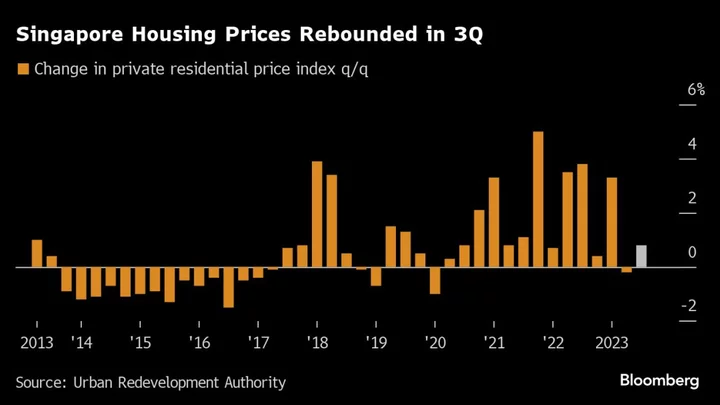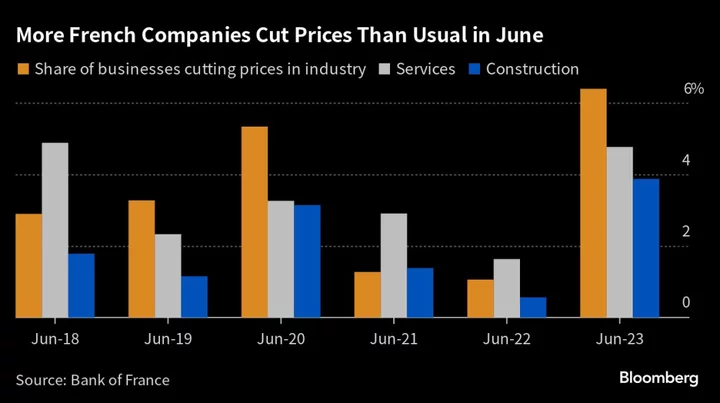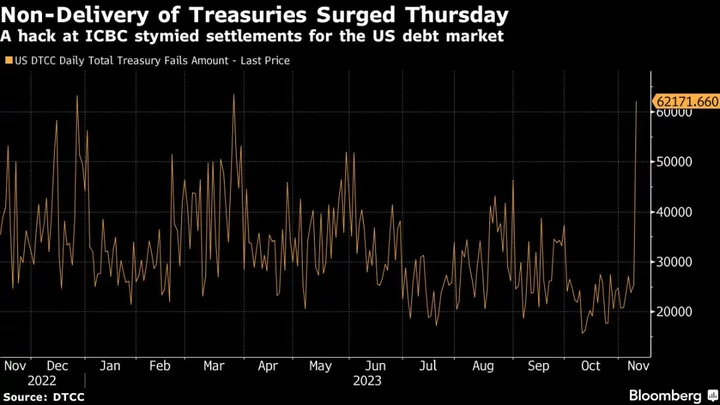Singapore’s seven-year rally in private home prices, the longest upcycle since the 1980s, is about to end as a demand-supply imbalance could reverse next year, according to Morgan Stanley.
Analysis of leading indicators including housing vacancies and sales show home prices will likely decline 3% in 2024, and the downturn may persist for as many as two years, analysts Wilson Ng and Derek Chang wrote in a note dated Nov. 8.
“An actual home price decline is yet to be priced in for developer stocks,” Ng and Chang wrote. “The end is near for what has been an historic seven-year rally in private home prices.” They downgraded both of the island-nation’s key property developer stocks City Developments Ltd. and UOL Group Ltd. to underweight, from overweight and equal-weight respectively.
Morgan Stanley is calling time on an unprecedented real estate boom in the city-state after home prices rose more than expected in the third quarter. Singapore’s property market has so far dodged the downturns seen in other major cities, prompting major curbs to cool the overheated market. In contrast, rival financial hub Hong Kong has slashed housing taxes in order to revive its ailing property sector.
Singapore’s Home Rents May Fall After Longest Rally in a Decade
City Developments and UOL declined more than 2% each Thursday, extending the sector’s year-to-date underperformance versus the Straits Times Index. The FTSE ST All-Share Real Estate Index has dropped 13% this year compared to a 3.3% fall in Singapore’s equity benchmark.
A housing downturn, higher borrowing costs and risks of UOL and City Developments getting culled from the MSCI Singapore Index will keep their valuations in check, according to Morgan Stanley. The Wall Street bank ranks among the top brokers covering both developers, according to relative returns data compiled by Bloomberg.
Housing demand will decline as high stamp duties deters foreign buyers, fewer people upgrade from public housing and investors pull back, the analysts said. Meanwhile, policymakers are putting up more land for sale than they have in a decade, they added.
Within their Singapore property coverage, they prefer asset managers and real estate investment trusts, saying they face fewer structural and cyclical headwinds.
(Adds analysts’ comment in third paragraph)









